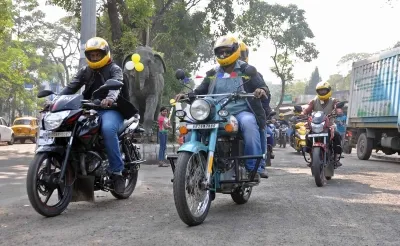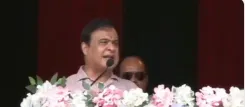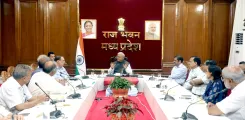Why Are Karnataka Authorities Cracking Down on Bike Taxis?

Synopsis
Key Takeaways
- Karnataka authorities have launched a crackdown on bike taxis.
- High Court ruling declared bike taxi services illegal.
- Over one lakh riders' livelihoods are at risk.
- Namma Bike Taxi Association seeks political intervention.
- Major app-based aggregators have limited operations to parcel deliveries.
Bengaluru, June 16 (NationPress) The Karnataka Transport and police authorities have intensified their crackdown on bike taxi services in Bengaluru and other district headquarters, following a directive from the High Court. On just Monday, RTO officers seized 103 bike taxis in Bengaluru.
Regarding the crackdown, RTO Additional Commissioner Mallikarjuna mentioned that the Karnataka High Court had ruled that bike taxi services are illegal, noting that there are no legal provisions for their operation.
"Our enforcement against bike taxis commenced today. Two-wheelers equipped with white license plates are prohibited from commercial use. Additionally, white-plate vehicles are also barred from being used commercially," he stated.
Previously, the Transport Department had not permitted bike taxi services, emphasizing that there is no legal backing for such operations. He cautioned that if the High Court's order is disregarded, the enforcement will persist.
Meanwhile, the Namma Bike Taxi Association has reached out to the Leader of the Opposition in the Lok Sabha, Rahul Gandhi, and Chief Minister Siddaramaiah, requesting immediate intervention to lift the ban.
The letter highlights the potential livelihood crisis impacting over one lakh bike taxi riders throughout the state.
Several popular app-based aggregators have already reduced their operations in Karnataka, now focusing solely on parcel deliveries.
In a statement released on Monday, Uber conveyed that it has decided to suspend bike taxi operations in Karnataka as of June 16, following the High Court ruling.
"This decision will adversely affect the thousands of riders who depend on bike taxis for their daily transportation needs, as well as the numerous drivers who rely on these services for their income. We will continue to engage with the Government of Karnataka to develop a progressive policy framework that ensures safe, accessible, and affordable mobility options for everyone," the statement read.
This crackdown follows a High Court ruling last Friday, which declined to stay a single-judge bench order mandating the cessation of bike taxi services. A division bench, led by Acting Chief Justice V. Kameshwara Rao and Justice Sreenivas Harish Kumar, extended the deadline for halting services to June 15 and scheduled further hearings for June 24.
The initial order, issued on April 2 by Justice B. Shyam Prasad, stated that bike taxi aggregators cannot operate in Karnataka unless the state enacts guidelines under Section 3 of the Motor Vehicles Act, 1988, and establishes the necessary regulations.
This order was a response to petitions from various companies seeking additional time to phase out their services.
The Namma Bike Taxi Association's letter warns that the ban jeopardizes the livelihoods of over one lakh riders, many of whom are students, daily wage earners, and primary breadwinners.
"We endure the sun, rain, and heavy traffic for 10-12 hours daily to support our families. This is not merely supplementary income; it is our sole source of income," the letter emphasizes.
"We earnestly request—please do not impose a ban on us overnight. We urge for dialogue to find a solution that prioritizes passenger safety, compliance with regulations, and, most importantly, allows our families to thrive," the letter concluded.
The association criticized the Transport Department for abruptly cutting off riders' sources of income instead of establishing regulations for licensing, training, and insurance. They also referenced the state's prior withdrawal of the electric bike taxi scheme as another example of inconsistent policy.
Emphasizing the socio-economic implications, the letter stated: "Karnataka has made significant strides in supporting gig workers through social security initiatives, welfare boards, and insurance. However, this decision is driving us into a crisis."





